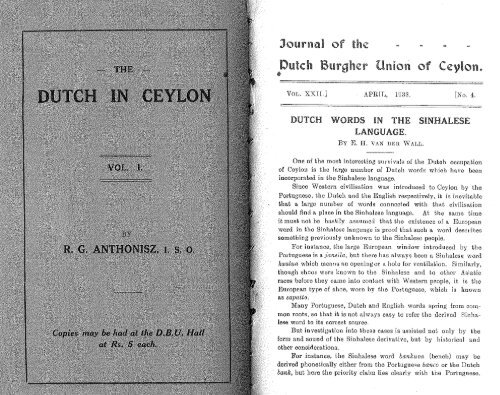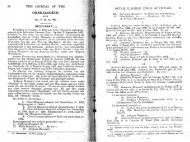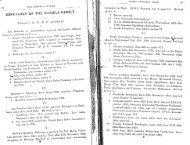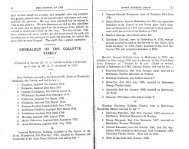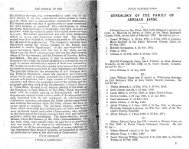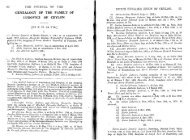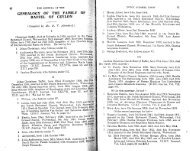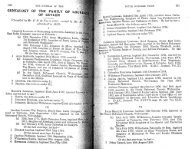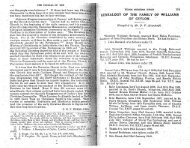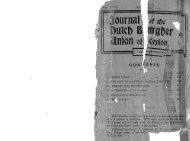Part 4 - Dutch Burgher Union of Ceylon
Part 4 - Dutch Burgher Union of Ceylon
Part 4 - Dutch Burgher Union of Ceylon
Create successful ePaper yourself
Turn your PDF publications into a flip-book with our unique Google optimized e-Paper software.
iiX/VC/-' ift i.<br />
* OS<br />
i- s = M-: 1 ;so;-:'-/.. i :■ o<br />
1 u/*if fiici '■!• .'in '' ii //ii O i» ' . iit*ll<br />
VOL. XXII.] ■ APRIL, 1933. [No. 4.<br />
BY E. H. VAN DER WALL,<br />
One <strong>of</strong> the most interesting survivals <strong>of</strong> the <strong>Dutch</strong> occupation<br />
<strong>of</strong> <strong>Ceylon</strong> is the large number <strong>of</strong> <strong>Dutch</strong> words which have been<br />
1 incorporated in the Sinhalese language.<br />
Since Western civilisation was introduced to <strong>Ceylon</strong> by the<br />
Portuguese, the <strong>Dutch</strong> and the English respectively, it is inevitable<br />
that a large number <strong>of</strong> words connected with that civilisation<br />
\ should find a place in the Sinhalese language. At the same time<br />
it must not he hastily assumed that the existence <strong>of</strong> a European<br />
word in the Sinhalese language is pro<strong>of</strong> that such a word desetibes<br />
something previously unknown to the Sinhalese people.<br />
i For instance, the large European window introduced by the<br />
Portuguese is a janella, but there has always been a Sinhalese word<br />
kaulua which means an opening or a hole for ventilation. Similarly,<br />
though shoes were known to the Sinhalese and to othor Asiatic<br />
> races before they came into contact with Western people, it is the<br />
European type <strong>of</strong> shoe, worn by the Portuguese, which is known<br />
as sapatto.<br />
• Many Portuguese, <strong>Dutch</strong> and English words spring from com-<br />
** mon roots, so that it is not always easy to refer the derived Sinhaf<br />
lese word to its correct source,<br />
But investigation into these cases is assisted not only by the<br />
form and sound <strong>of</strong> the Sinhalese derivative, but by historical and<br />
1 other considerations.<br />
For instance, the Sinhalese word bankuva (bench) may be<br />
j derived phonetically either from the Portuguese banco or the <strong>Dutch</strong><br />
bank, but here the priority claim lies clearly with the Portuguese.


